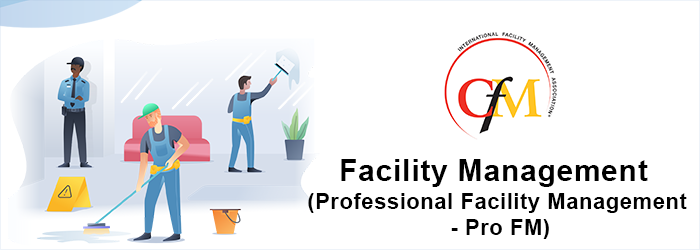

ProFM is the most comprehensive, career-applicable training and credentialing program for
today’s facility managers. It discusses the issues, problems, and challenges FMs
encounter in the actual world.
ProFM outlines the knowledge that FMs need to have in order to succeed in their jobs,
provides a thorough training program to acquire those abilities, and bestows a global
credential to acknowledge their accomplishments.
The "Pro FM" certification, offered by the International Facility Management Association (IFMA), is a comprehensive program designed to enhance the knowledge and skills of facility management professionals. Here are some highlights of the Pro FM certification training:
Pro FM will hasten an FM's entry into the field and show that they have a strong grasp of the fundamentals of facility management. It's perfect for:
There are no prerequisites for the FMP Learning System. In order to apply for the credential, the candidate must complete the 4 modules, all from the same version, and pass the final assessments of each.
The practice area of competent facilities practitioners is defined by 11 Competency Areas.